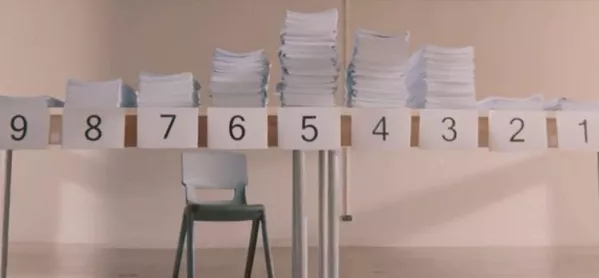In 1963, John Newsom and his colleagues presented to the government of the time a beautifully crafted, 300-page report titled “Half Our Future”.
The landmark report painted a picture of success and positive self-esteem for 50 per cent of the nation’s 15-year-olds. It went on to identify that the other 50 per cent languished with an unsuitable curriculum resulting in poor or no qualifications. The report’s various recommendations led to the raising of the school leaving age.
More than five decades later and that 50 per cent identified by John Newsom has its current equivalent in “the forgotten third”.
This year’s GCSE results tell us that 36 per cent of 16-year olds failed to secure a standard pass (Grade 4) in English and maths combined. These students were awarded grades 1, 2 and 3 (the unfortunately dubbed “123ers”) with disadvantaged youngsters disproportionately represented among them.
We thus have a schooling system which, after 12 years of compulsory education, awards around 190,000 young people a qualification at age 16 which is not recognised as educationally and socially worthwhile. A basic passport to further education and employment has been denied. Where is the common dignity here? And what does this perceived failure do for individual self-worth?
GCSE results: ‘The forgotten third’
I recently interviewed a small group of these students, who are now dutifully resitting English GCSE (statistically, two-thirds will fail again). Their words should haunt us, and I saw the expressions on their faces as they spoke.
“I am a better person than these grades show.”
“This grade makes it look as though I can’t read or write.”
“If you fail these, you are nothing.”
“I feel as though I am trapped in the English and maths waiting room.”
What these and many of their peers say every year has led ASCL to set up a commission of inquiry into what we are calling “the forgotten third”. The commission will focus on the learning and teaching of English, from early years to age 18, in the context of the current assessment system.
The commission is made up largely of practising English teachers and school and college leaders, with a sprinkling of external expertise on the UK examination system and international best practices.
We aim to gather evidence over the coming months and report next summer. Without pre-judging, where is the evidence likely to take us? At our first meeting, the following questions emerged as worthy of detailed study, in essence about content and assessment:
- What can be done differently with parents and carers to ensure that children entering school have a better command of language?
- Is language learning through primary and secondary a smooth gradient or is it interrupted by the structure of key stages?
- How can schools secure strong cultural capital and richness in oracy for all pupils?
- English is our wonderful global language: how is it that many of our young people don’t master it? And how should “mastery” be defined?
- Do we examine and recognise what students know and can do, as GCSE was originally designed to do?
- Should we examine at age 16 when much of the rest of the world does so at 18, following a series of different “pathways”?
- Should we retain an exam system that year-in, year-out creates a forgotten third?
The commission’s focus is English, and the heart of our final recommendations will lie there. Equally, if we conclude that 190,000- plus students are trapped annually by wider system failure, we shall say so, to policymakers, examination boards and the wider professional community.
ASCL speaks on behalf of its 19,000-plus members in the nation’s schools and colleges. As an organisation, it is also charged with acting on behalf of children and young people. The commission’s challenge is to meet those two goals in order to improve the educational life chances of current and future generations.
And while we are working, we shall not forget the young man who said so eloquently: “I am a better person than these grades show.” After all, it is a matter of dignity.
Roy Blatchford is the commission chair at the Association of School and College Leaders





